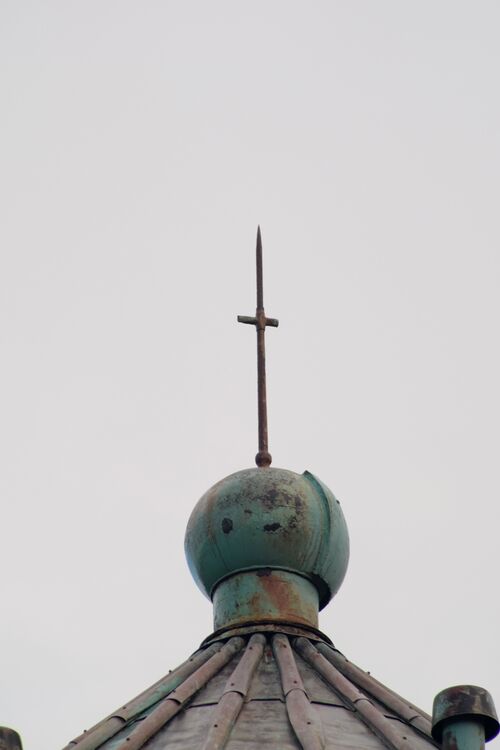Difference between revisions of "Lighthouse rooftop"
| Line 1: | Line 1: | ||
(Personal interpretation) | (Personal interpretation) | ||
| − | The | + | The shape of the rooftop of the lighthouse could be read as a symbol of the connection between christian religion and the work that was carried out in these buildings. Firstly the upright stick is a cross. It is stuck on top of a copper ball that resembles a globe. Together they look like what is known in christian iconography as a Globe Cross. "The Globe Cross or Triumphal Cross is an orb surmounted with a cross. Its orb represents Christs' reign over the world, and it is often shown atop Christ's scepter in Christian art. This cross is also quite elaborate and it is used in royal regalia.""<ref name="globe-cross">''https://www.learnreligions.com/cross-symbolism-3454063''</ref> |
| − | Furthermore, | + | Furthermore, an unintentional extension of this can be seen when looking through a pair of binoculars, The rust patterns are not unsimilar to the lay outs of continents on a 2d cartography of the world, from a European perspective. |
[[File:Lighthouse-rooftop.JPG|thumb|500px|view on Bidston Observatory from hillside]] | [[File:Lighthouse-rooftop.JPG|thumb|500px|view on Bidston Observatory from hillside]] | ||
Revision as of 02:48, 6 August 2021
(Personal interpretation)
The shape of the rooftop of the lighthouse could be read as a symbol of the connection between christian religion and the work that was carried out in these buildings. Firstly the upright stick is a cross. It is stuck on top of a copper ball that resembles a globe. Together they look like what is known in christian iconography as a Globe Cross. "The Globe Cross or Triumphal Cross is an orb surmounted with a cross. Its orb represents Christs' reign over the world, and it is often shown atop Christ's scepter in Christian art. This cross is also quite elaborate and it is used in royal regalia.""[1]
Furthermore, an unintentional extension of this can be seen when looking through a pair of binoculars, The rust patterns are not unsimilar to the lay outs of continents on a 2d cartography of the world, from a European perspective.
